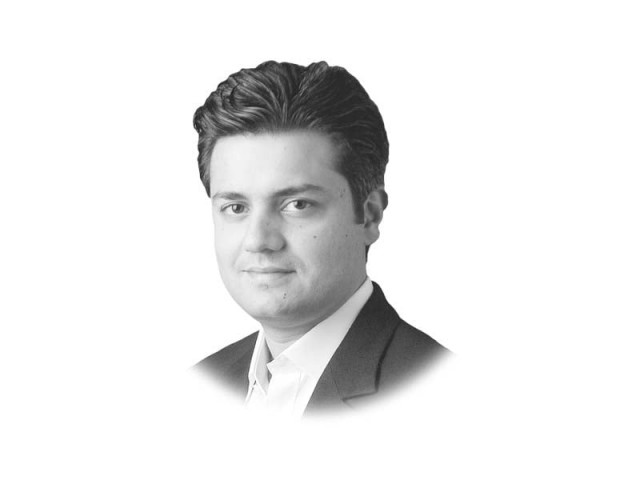PTI’s LG polls debacle
The PTI should've used the time till the 2018 elections to fill the huge gaps in its party organisation

The writer is a graduate of SOAS and Lincoln’s Inn. He is a member of the PTI
What are the reasons for this increased gap? It would be simplistic to pin the blame solely on poor choice of candidates. After all, it’s inconceivable that all candidates were poorly selected. And I know from personal experience that some PTI candidates and their campaigns were far superior to their counterpart’s and yet they lost.
Amidst the emotional outbursts and sweeping statements, most activists and commentators tend to overlook that the nature of LG elections, which is profoundly different from that of general elections. The LG polls are fought purely along developmental lines as opposed to national issues that mainstream political parties claim to represent. Inflation, unemployment, energy are not the key words you hear in the speeches of candidates for local councils. Instead, sewerage, patchwork, local parks and clean water are the issues canvassed. And the voters are only too acutely aware that sitting governments and only their candidates will have access to developmental funds and official patronage. Ruling parties have, in the past, designated their losing candidates as ‘coordinators’ and diverted the funds towards them in the councils where the opposition candidates were victorious. Hence, sitting governments traditionally and invariably win LG polls as people vote across party lines and focus inwards towards their local issues. They identify candidates most likely to benefit from government patronage and notwithstanding their party affiliations, vote in large numbers for these government beneficiaries. The fact that these elections have always been fought on a non-party basis in the past has only cemented these non-partisan voting trends.
However, while the government candidates have an edge over opposition parties, that still doesn’t explain their landslide victories in places like Lahore. The PTI had only recently fought a very close by-election in the NA-122 constituency and had even managed to snatch the provincial seat from the area from the ruling PML-N. There are other factors at play here as well. After the 2013 elections, the PTI should have used the time till the next general elections to fill the huge gaps in its party organisation. Instead, the party took a diametrically opposite approach and launched itself into an agitation mode that drove its rank and file to near exhaustion. The protracted dharna and the huge gatherings in almost all large districts of Punjab in the run-up to it consumed most of the time, energy and resources of party activists and leaders. Most importantly, the time that could have been used for organising was lost towards protests. Granted, the rigging issue was too important to ignore. But it could have been handled in a way that allowed the party to simultaneously organise at the grass roots. Today, the party, unfortunately, still stands where it stood on May 11, 2013, as far as organisation is concerned. That is a huge cause for concern. Unless remedial measures are taken immediately, PTI candidates will suffer the same handicap in the next general elections too.
But all is not lost. If the past is anything to go by, these elected local councillors have not been able to greatly enhance the fortunes of their political parties when general elections come around. The PML-Q-supported candidates swept the 2005 LG elections in Lahore, but despite the overwhelming support of local councillors, the party couldn’t win a single seat in the district during the 2008 general elections when the agenda was transformed from local to national. So the PTI still has a fair chance of success in the next general elections, provided it starts focusing on its grass roots organisations immediately. The party’s LG candidates provide a huge reserve of man-power at the ward and council levels. The better candidates need to be channelised and tied into the party organisation whilst the poorer performers need to either be replaced or strengthened at the very least.
The PTI is a party that has rejuvenated the youth and reignited its passions. The party and its leader have contributed enormously towards the evolution of political discourse in the country and have ensured that the ruling parties in all provinces must now focus on the quality of governance rather than empty rhetoric. But the same applies to the PTI as well. It must now take the next step in its evolution and transform itself into an organised and powerful election-winning machine. Pakistan desperately needs a powerful opposition, and the PTI contains most of the ingredients necessary. But for now, it’s time for the tedious yet necessary task of organisation at the grass roots.
Published in The Express Tribune, November 9th, 2015.
Like Opinion & Editorial on Facebook, follow @ETOpEd on Twitter to receive all updates on all our daily pieces.













COMMENTS
Comments are moderated and generally will be posted if they are on-topic and not abusive.
For more information, please see our Comments FAQ